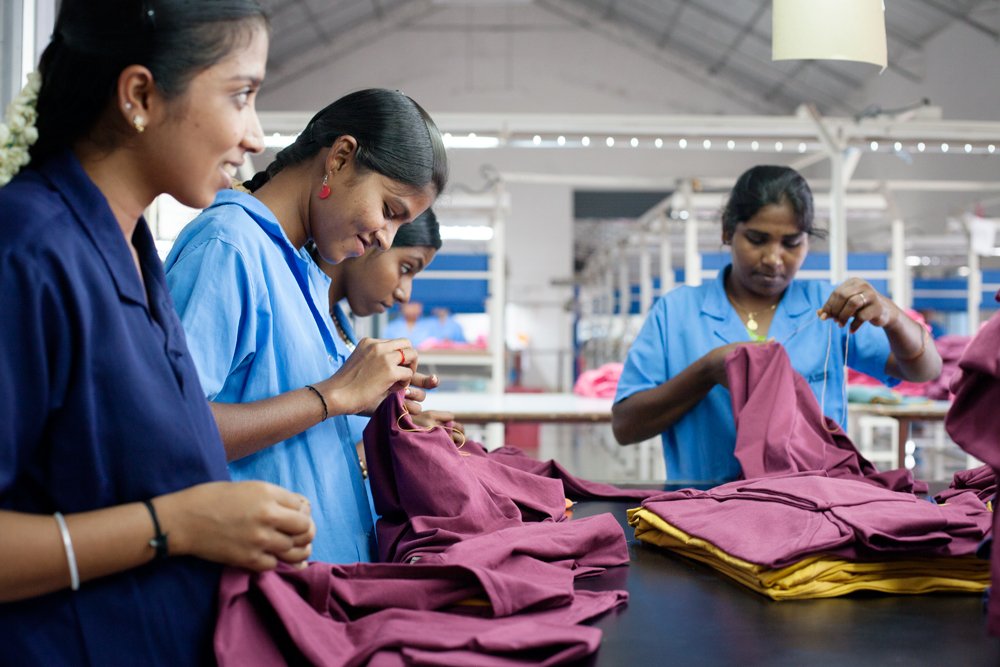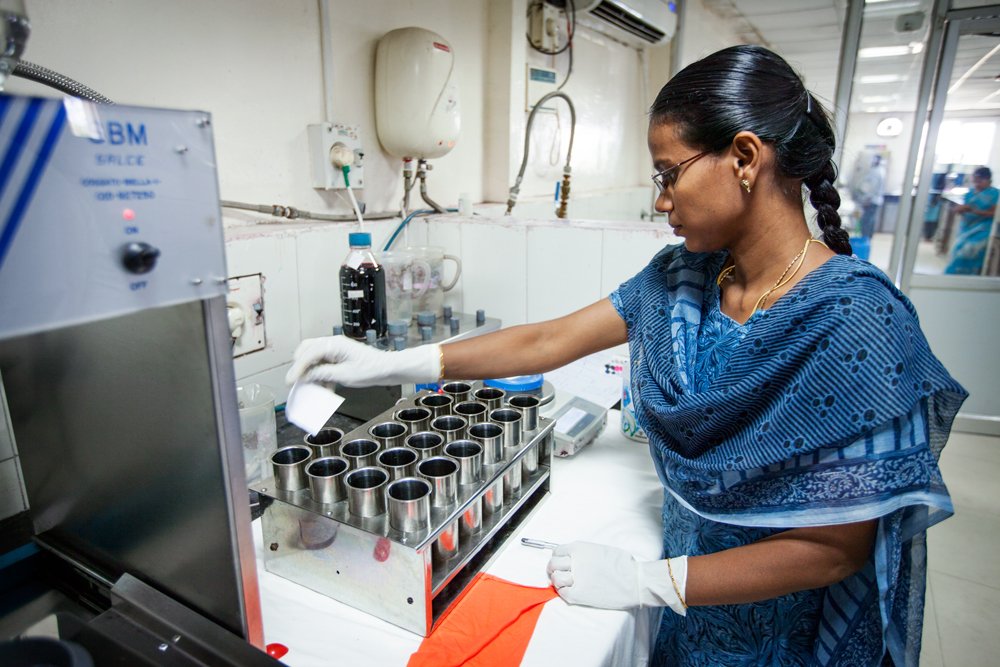
It’s no secret that the fashion industry has a bad wrap for its treatment of its workers and the environment. From high-profile sweatshop revelations to fatal factory collapses, fashion manufacturing is one of the most ethically-immoral industries in the world. But does it have to be that way? Is there a way to atone for the damage done and to reverse our future impacts? The answer is yes, and it starts with you: designer-entrepreneurs who care about how their business can negatively impact our environment and exploit workers overseas, and making informed choices to reduce their footprint.
Did you know that many people are required to create and manufacture fabric? Fabric manufacturing is a seriously labor-intensive process. At the least, you’ll need the work of knitters, weavers, dyers, cotton pickers, yarn manufacturers, washers, administrative staff… and of course, you’ll need to ensure each individual is treated with respect and paid fair wages for their work.
One of the biggest blows taken by both the world and the impoverished factory workers in it is fabric production. The choices you make relating to your fabric supplier can drastically affect the lives of workers worldwide, and their nations’ natural resources which they rely on to survive. If you’re interested in making ethical, sustainable efforts in your garment production, you can start by doing some research about your fabric supplier in the following areas:
Location
The physical location of your fabric supplier’s manufacturers matters – a lot. Make sure you have the address of the fabric mill’s location knowing your supply chain is critical! Some nations do not have laws protecting their workers, making their employees subject to exploitation and unsafe work conditions, which others are simply so far away that the shipping required to move the product from Point A to Point B will drastically harm the environment.
Chemical Usage
Chemicals are used to dye and bleach fabric, as well as to soften it and to create finishing effects. These chemicals affect the environment where they are used, seeping into water and land, as well as the health and safety of the people working with them. In addition, pesticides are used to spray crops to kill and repel insects that destroy crops. Not only does this affect the environment in water, but animals also ingest it, and it goes back into our food. Additionally, unsafe use of agricultural chemicals has severe health impacts on workers in the field and on ecosystems that receive excess doses that run-off from farms.
Factory Certifications

From labor standards to fiber/fabric certifications, manufacturers who present their certificates to fabric suppliers tend to have better sustainability and ethical practices. Ask your fabric supplier about the certifications of the factories that they work with.
Growth Opportunity Employers
Hopefully, your fabric supplier of factory works directly with the mills. Ask either of them about the opportunities provided to the workers. Do they offer education opportunities to their workers? Insurance or benefits? Childcare services? Companies who invest in their employees not only have happier, more satisfied workers but also see financial benefits to themselves in the long run.
If maintaining a socially and environmentally responsible fashion business is important to you, it’s important to do your research. Thankfully, there are loads of resources out there to help you design and manufacture your company’s goodies in ethical ways!
What inspired you to pursue ethical practices in your fashion career?
Like what you see here? Want to create your products ethically and need a little hand? Check out our manufacturing services, sew we can help you create fair trade products. Click here.



